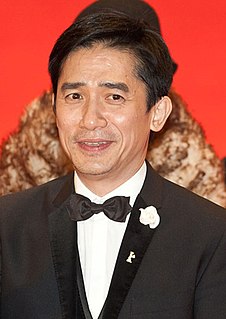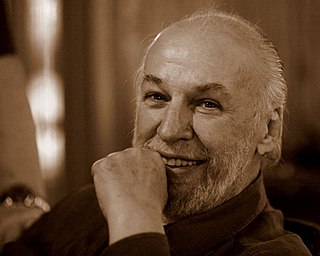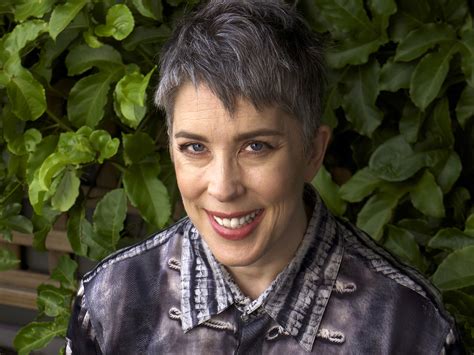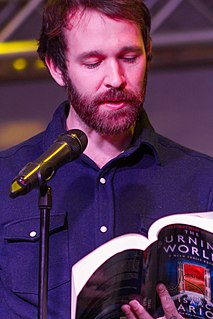A Quote by Mary Kay Zuravleff
I realized early on in writing the book that it needed to be from a family point of view, and that nobody outside the family would weigh in. And then well into writing it, the question became how to balance the perspectives; how to switch between chapters.
Related Quotes
My father left us three times when I was between three and six. You just couldn't tell - suddenly one day he would leave and then maybe he would come back after six months without telling you why. And then maybe he would disappear again after a year and it's very difficult to take when you are four or five. You just don't know how to handle it and nobody in the family wants to talk about it. My mother didn't know how to tell us and she needed to work because we needed money to live.
I thought, "Well, I'm writing about early childhood, so maybe it would make sense to write about late childhood as well, early adulthood." Those were my thoughts, and this was how this crazy book [Winter Journal] was composed. I've never seen a book with pictures like at the end, pictures related to things you've read before.
My earnestness at the injustices I witnessed when I was writing 'Random Family' may have been my gravest reportorial offense during the early years of reporting. When I discuss the book with students, they often ask me how I could 'stand by' in the face of so much suffering; the egregiousness wasn't my powerlessness but my surprise.
I didn't quite know whether I was writing for the non-Muslim or the Muslim, and at the end of the day I'm writing, I hope, for people who are interested, whatever their faith. Even if they don't have any faith. As a barrister I had certain advantages - I could think like a lawyer and I knew how all the laws were fitted together and all the rest of it. One of the things I realized pretty early on while I was writing book about Shari'a was that that was as much a hinderance as it was a help because the Shari'a isn't just a system of rules.
I came out with a book called The True Secret of Writing: Connecting Life with Language. It's a book that describes how writing is a practice and how my teaching is part of that practice. I direct the writing and create books but underneath, there's always the river of practice happening. No good, no bad. Just do it.
There are innumerable writing problems in an extended work. One book took a little more than six years. You, the writer, change in six years. The life around you changes. Your family changes. They grow up. They move away. The world is changing. You're also learning more about the subject. By the time you're writing the last chapters of the book, you know much more than you did when you started at the beginning.
I noticed when I was writing the book that I would tend to mention 'outside' songs right through to about the middle of the 70's. And then all of a sudden that starts disappearing from the book, and just about everything I'm talking about from that point on are the records that I'm totally involved in.







































